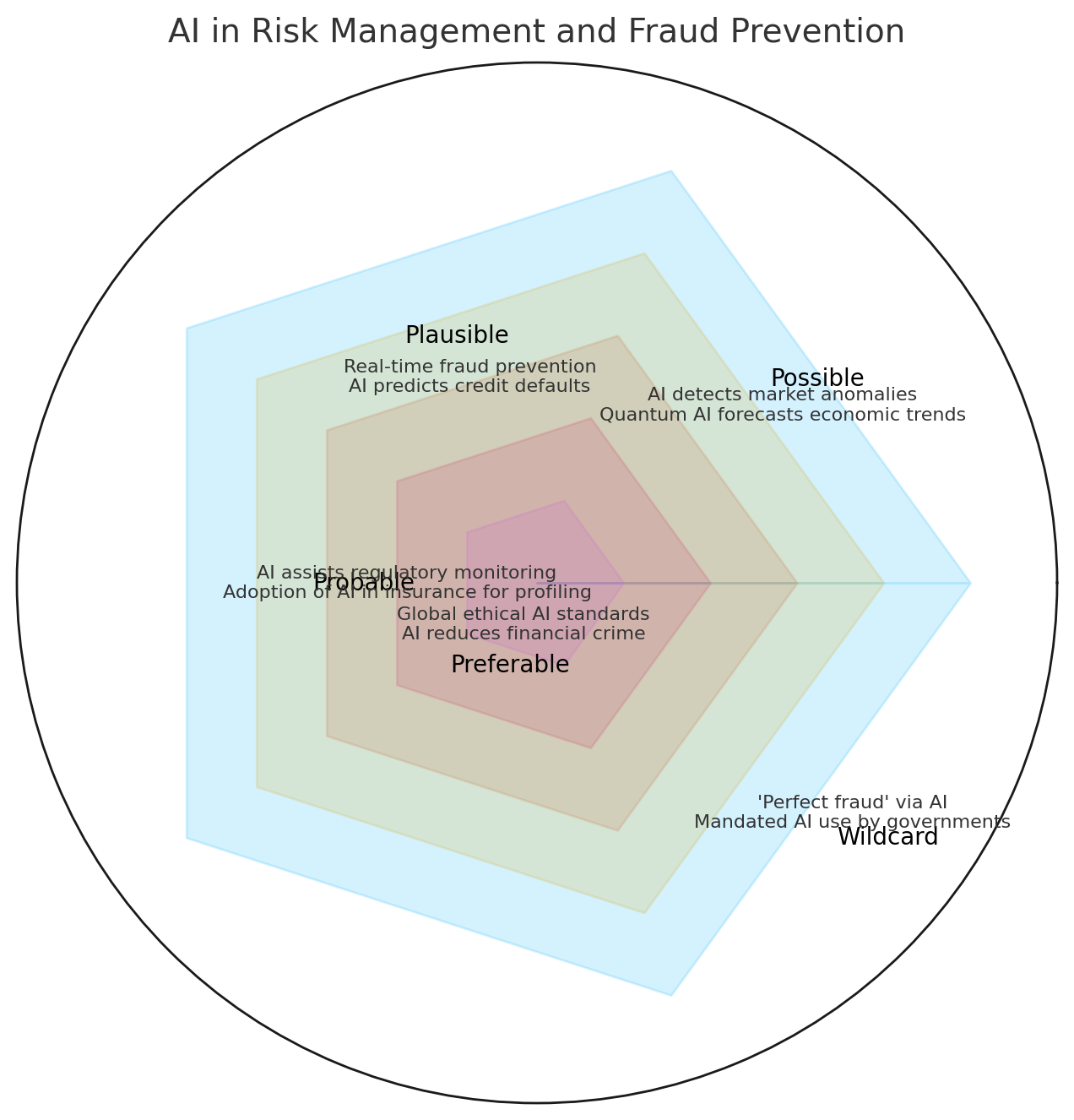Artificial intelligence (AI) is revolutionizing the financial sector, with profound implications for risk management and fraud prevention. As the world becomes increasingly digitized, financial institutions face rising challenges in combating sophisticated fraud schemes, ensuring compliance, and managing risks. By leveraging AI, these organizations can reimagine traditional approaches, opening pathways to more secure, efficient, and innovative solutions.
1. The Cutting-Edge of AI in Finance
In the realm of possibilities, AI's potential is boundless. Advanced algorithms could:
- Detect Market Anomalies Early: AI systems might one day identify subtle patterns in trading data that humans overlook, preventing financial crashes before they spiral out of control.
- Quantum AI in Forecasting: With the advent of quantum computing, AI could analyze vast datasets to uncover long-term economic trends, providing unprecedented foresight for financial institutions.
While these scenarios remain speculative, breakthroughs in AI and quantum technologies could turn them into reality, reshaping the way financial risks are managed.
2. Tangible Innovations on the Horizon
Building on current trends and capabilities, several applications of AI are poised to transform fraud prevention and risk management in the near future:
- Real-Time Fraud Prevention: AI systems are increasingly capable of instantly flagging and blocking suspicious transactions by analyzing behavioral patterns and contextual data.
- Accurate Credit Default Predictions: Financial institutions are adopting machine learning models that predict credit defaults with remarkable precision, enabling better lending decisions and risk assessment.
These developments align with today’s technological trajectory, making them likely to gain widespread adoption in the coming years.
3. AI Becomes Integral to Financial Systems
Some AI applications are not just plausible—they are already taking root in the financial sector and are set to become the standard:
- Regulatory Compliance Assistance: AI-driven systems can monitor transactions in real-time, ensuring that banks and institutions remain compliant with evolving regulations while minimizing manual oversight.
- Insurance Risk Profiling: Insurers are embracing AI to assess risks more accurately, streamline claims processing, and detect fraudulent claims.
These advancements are not just probable; they represent the natural progression of AI integration into financial systems, where efficiency and security are paramount.
4. Ethical and Inclusive AI
The financial sector’s ideal future hinges on ethical and responsible AI deployment. Preferable outcomes include:
- Global Ethical Standards: Establishing universally accepted guidelines for AI in fraud prevention to protect customer privacy and ensure fairness.
- Reduction of Financial Crime: By staying ahead of fraudsters, AI could drastically reduce instances of financial crime, safeguarding institutions and individuals alike.
These futures reflect a commitment to leveraging AI for the greater good, emphasizing transparency, security, and inclusivity.
5. The Unpredictable Impact of AI
While AI offers immense promise, its evolution could also bring unexpected disruptions:
- “Perfect Fraud” Scenarios: Paradoxically, AI might be exploited to create highly sophisticated fraud schemes, taking advantage of algorithmic loopholes in ways traditional methods cannot anticipate.
- Mandated AI Usage: Governments might require all financial institutions to deploy AI in risk management, transforming it from a competitive advantage to a regulatory necessity.
These wildcard scenarios highlight the importance of proactive governance and adaptability as AI continues to evolve.
Conclusion: Navigating AI’s Role in Financial Security
AI stands at the forefront of innovation in risk management and fraud prevention, offering solutions that range from early anomaly detection to robust compliance monitoring. However, its transformative potential comes with challenges that demand careful navigation. By prioritizing ethical standards, fostering innovation, and preparing for unexpected disruptions, financial institutions can ensure that AI serves as a force for security and trust in the ever-changing financial landscape.
The future of AI in finance is as dynamic as it is promising. Whether exploring the realm of possibilities, working toward preferable outcomes, or preparing for wildcards, one thing is certain: AI will redefine how we manage risks and combat fraud in the decades to come.














Discussion